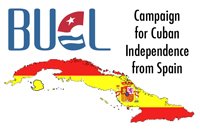Later, of course, the same prosecutors who so vigorously defended Nifong’s conduct became vocal proponents of a severe sanction. Marquis has worried over the undermining of prosecutorial authority, due to the “Nifong effect,” and Murphy has also recently edged away from the former DA. What once played as reasonable conduct is now portrayed as the misdeeds of an outlier. A simple calculus explains the shift: If Mike Nifong’s conduct is commonplace, then the whole system is corrupt. If other DAs do what he did, then we have to face up to how widespread and corrosive prosecutorial misconduct really is—a discussion Marquis and Murphy and other prosecutors would strongly prefer to avoid.
Though the Duke case has been spun from the outset as a parable about race, it has always been far more about class, access, and power. From the beginning, the three boys had extraordinary legal talent, unusual political access, and significant press savvy. With a steady stream of exculpatory evidence and investigative triumphs that would have eluded all but the wealthiest of defendants, the defense team mounted an extremely well-funded and successful public campaign, exerting tremendous pressure on Nifong and other state officials. In the end, the Duke defendants orchestrated Mr. Nifong’s downfall and also won an outcome almost unheard of in our criminal justice system—a pretrial exoneration.
The disbarment of Mike Nifong, and the civil suit or even criminal charges that are almost sure to follow, might seem a pleasing end to a sad saga. And yet Nifong is a scapegoat. Despite their terrifying power to ruin lives, prosecutors are afforded almost unparalleled discretion to do their jobs and extraordinary deference from the courts. As a result, serious sanctions for prosecutorial misdeeds are virtually unheard of. This makes it highly unlikely that Nifong’s comeuppance will deter aggressive prosecutors. Instead, his punishment will be seen for what it is: a freakish anomaly.
Civil Liberties
“Is London’s future Islamic?”
Via Rand Simberg comes this essay by Michael Hodges.
I can’t tell if the Hodges piece is parody. If not, he reminds me of a leftist anti-Semitic high-school history teacher I had. He too used that “people of the book” line, to knock Christendom for being more hostile to Jews than Islam is and to explain away Muslim mistreatment of Jews.
In fact the Muslim record, particularly the recent Arab-Muslim record, only looks good in isolated cases or by comparison with the worst abuses of old Christendom. The modern Christian world is astonishingly tolerant by historical standards. Christian institutions have shrunk away from national government while radical Islam seeks to perpetuate Islam’s historical political totalism.
Campaign Against Spanish Support of Cuba’s Tourism Apartheid

Our friend Henry Gomez has started Bloggers United for Cuban Liberty (BUCL), a worthwhile campaign to pressure Spain to stop being one of Castro’s principal enablers.
A Role to the Left
The pursuit of an independent foreign policy by House speaker Nancy Pelosi is obviously a bad idea no matter what one’s political persuasion.
Yet the Democrats’ abrogation of powers and roles comes as no surprise to students of the modern Left. Pelosi is merely the last instance of a long evolution by the Left away from the Rule of Law and towards the rule of men.
Hanging George Washington
So Khalid Shaikh Mohammed, stated in his tribunal that:
His actions, he said, were like those of other revolutionaries. Had the British arrested George Washington during the Revolutionary War, Mr. Mohammed said, “for sure they would consider him enemy combatant.”